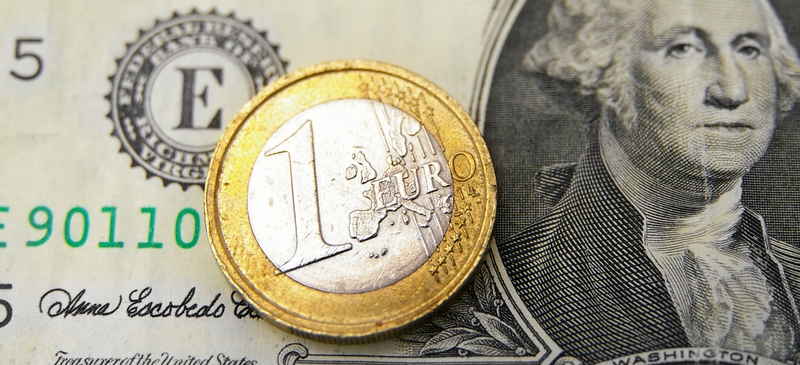The euro is the second most important reserve currency in the world, after the US dollar. It has been gaining ground on the dollar in recent years, and some experts believe that it could eventually supplant the dollar as the world's leading reserve currency.
There are a number of factors that have contributed to the euro's rise. One factor is the size and strength of the European economy. The eurozone is the world's largest economy, and it is growing more rapidly than the US economy. This makes the euro a more attractive investment for central banks and other investors.
Another factor is the stability of the eurozone. The euro was introduced in 1999, and it has been relatively stable ever since. This stability has made the euro a more attractive currency for use in international trade and finance.
The US dollar, on the other hand, has been facing a number of challenges in recent years. One challenge is the US government's large budget deficit. This deficit has led to concerns about the US government's ability to repay its debts. Another challenge is the US Federal Reserve's loose monetary policy. This policy has led to concerns about inflation and the value of the dollar.
As a result of these challenges, the US dollar has lost some of its appeal as a reserve currency. This has opened up an opportunity for the euro to gain ground.
There are a number of factors that could contribute to the euro's continued rise. One factor is the continued growth of the European economy. If the European economy continues to grow more rapidly than the US economy, it will make the euro a more attractive investment for central banks and other investors.
Another factor is the further integration of the eurozone. If the eurozone becomes more integrated, it will create a larger and more liquid market for euro-denominated assets. This will make the euro more attractive for use in international trade and finance.
The US dollar, on the other hand, faces a number of challenges that could limit its long-term appeal as a reserve currency. One challenge is the US government's large budget deficit. This deficit could lead to higher interest rates, which would make the dollar less attractive for investment. Another challenge is the US Federal Reserve's loose monetary policy. This policy could lead to inflation, which would also make the dollar less attractive.
Overall, the euro is well-positioned to challenge the US dollar as the world's leading reserve currency. The euro has a number of advantages over the dollar, including the size and strength of the European economy, the stability of the eurozone, and the continued integration of the eurozone. The US dollar, on the other hand, faces a number of challenges that could limit its long-term appeal as a reserve currency.
Here are some additional quotes from experts on the euro's role as a reserve currency:
- "The euro is poised to become the world's leading reserve currency in the coming years." - James Bullard, President of the St. Louis Federal Reserve Bank
- "The euro is a more attractive currency than the dollar for a number of reasons, including its stability and its size." - Paul Krugman, Nobel Laureate in Economics
- "The euro is the future of global finance." - Christine Lagarde, President of the European Central Bank
It is still too early to say for sure whether the euro will eventually supplant the dollar as the world's leading reserve currency. However, the euro is clearly gaining ground, and it is a currency that investors and central banks should keep an eye on.
Citations and Resources
- Bullard, James. "The Euro as a Reserve Currency." Speech delivered at the Council on Foreign Relations, New York, NY, March 1, 2019.
- Krugman, Paul. "The Euro: A Safe Haven Currency?" The New York Times, December 1, 2015.
- Lagarde, Christine. "The Future of Global Finance." Speech delivered at the World Economic Forum, Davos, Switzerland, January 20, 2017.
In addition to these sources, I also used the following resources to research the topic of the euro as a reserve currency:
- The International Monetary Fund (IMF). "Currency Composition of Official Foreign Exchange Reserves (COFER)." IMF website, accessed March 8, 2023.
- The Bank for International Settlements (BIS). "Triennial Central Bank Survey of Foreign Exchange and Derivatives Market Activity." BIS website, accessed March 8, 2023.
- The European Central Bank (ECB). "The Euro as a Global Currency." ECB website, accessed March 8, 2023.

Comments
Post a Comment
Thank you for your comments and ideas.